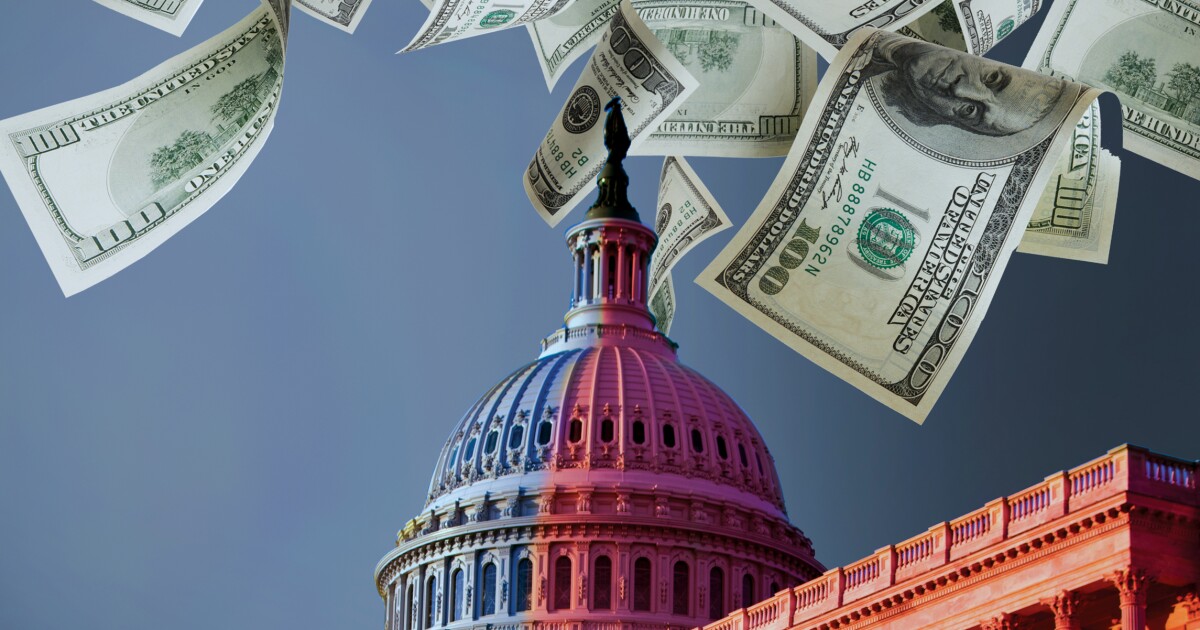

Republicans are back in charge of the House, and while the party lacks the White House and a Senate majority, it will no doubt try to eke out some tax changes despite the divided government.
Tax reform has long been one of the most popular dishes on the GOP’s political menu. And the House Ways and Means Committee just got a fresh chairman in Rep. Jason Smith (R-MO), a conservative firebrand who wants to use his time in charge to make the committee and tax policy more accessible to the working class.
Despite lofty goals, it will be challenging for House Republicans to exact any major changes in tax policy over the next two years, especially those that lack any bipartisan support. But smaller changes could be in store as the two parties wheel and deal with each other against the backdrop of the approaching 2024 presidential election.
“It’s probably safe to say it’s pretty unlikely that any big-picture reform of the tax code that is associated with one particular political party … to gain steam the next couple of years. Just the nature of divided government,” Garrett Watson, a senior policy analyst at the Tax Foundation, told the Washington Examiner.
KEY GROUP DISSENTS FROM HOUSE GOP BILL TO MAKE TRUMP TAX CUTS PERMANENT
Watson said the division on tax policy in particular is stark given the ideological gulf surrounding taxation, though he said he does think there will be some room for bipartisan and bicameral changes to the tax code. But those changes will be subdued compared to any ideas of big reform.
Alex Conant, a GOP strategist and a partner at Firehouse Strategies, said people generally underestimate the number of things that can get accomplished under a divided government. That is because, under a split government, both parties have an incentive to not be entirely obstructionist, he explained.
Conant said that while a party that controls just one chamber of Congress and not the White House is automatically seen as obstructionist, its members may not want to present themselves that way given their ambitions for the next election.
“When it’s a divided government, you obviously want to increase your power in the next election, and it’s hard to do that if you’re being tagged as the problem,” he told the Washington Examiner.
One issue that has had bipartisan support in the past and could be in play is the reinstatement of the full deduction for research and development expenses. This was a provision included in the 2017 Tax Cuts and Jobs Act, enacted by then-President Donald Trump and a full Republican Congress, which offset some of the tax cuts.
After failing to fit the change into legislation as the last session came to a close, companies will have to amortize R&D expenses over five years if Congress does not retroactively change the law — meaning they will face a higher tax burden. That would be a significant change in policy. Fully deducting R&D expenses has been the norm in the United States for decades.
The change has supporters in both parties given that businesses have long enjoyed the ability to write off spending on R&D — a tax policy believed to boost innovation and economic growth. The change was even included in the now-failed Build Back Better legislation championed by Democrats and President Joe Biden.
Another tax policy that could make some progress is the phase-out of bonus depreciation. That feature of the Trump tax cuts allowed companies to write off certain capital expenditures immediately instead of having those deductions written off over the “useful life” of the asset.
Bonus depreciation was temporarily expanded under the Trump tax cuts. The provision is set to begin phasing out this year when it will go from 100% of new investments last year to 80% in 2023. It is then set to keep fading before ending in 2026.
Although, tax changes like reinstating the full deduction on R&D expenses and changes to bonus depreciation are unlikely to be passed on their own, as they are likely tied to larger legislative vehicles that would undoubtedly include some priorities from Democrats.
Given time constraints and the desire of lawmakers to tack their own bills onto legislation, Conant said it’s difficult for relatively limited bills that concern broader issues to pass on their own.
“It’s really hard for Congress to pass stand-alone legislation,” Conant said. “Everyone has a bill; there are thousands of bills that are introduced every year.
A big longer-term priority of Republicans is to make permanent several provisions in the 2017 Tax Cuts and Jobs Act that are set to expire. This month, Rep. Vern Buchanan (R-FL) and 72 of his colleagues introduced a bill that would make permanent nearly two dozen tax provisions that were part of the tax cuts and are scheduled to sunset after 2025. While the proposal has little chance of becoming law with Biden in the White House, it still underscores the GOP’s drive to eventually make those provisions permanent.
Among the provisions that will end are lower individual income tax rates and the ability for pass-through businesses to take a 20% deduction. The 2017 tax law also doubled the estate, or death, tax exemption, which allowed people to keep more of their inheritance before being hit by federal taxes, among other temporary tax provisions.
Which, if any, of the provisions will be made permanent before the next election will come down to give-and-take bargaining between Republicans and Democrats wherein both parties will likely not come out feeling fully satisfied.
“The art of politics is finding common ground and building consensus,” Conant said, “so I think expiring tax cuts are typically a pretty easy give for Democrats in exchange for their policy priorities. And so it becomes a question of how badly do Republicans want to extend those tax cuts and what sort of concessions do the Democrats demand.”
Although, Watson emphasized that the survival of most of these expiring tax cuts will likely come down to which party controls Congress and the White House after the 2024 elections.
“I think that … sort of where things land in terms of the control of government at the beginning of 2025, after the election, is going to determine the future of the 2017 tax law more broadly,” said Watson.
CLICK HERE TO READ MORE FROM THE WASHINGTON EXAMINER
Republicans have also emphasized that in the divided Congress, they will deftly wield the power of oversight to conduct hearings and scrutinize the Biden administration. On the tax policy side of that, the GOP has said it plans to closely oversee the IRS and investigate past issues like the 2021 leak of taxpayer information.






